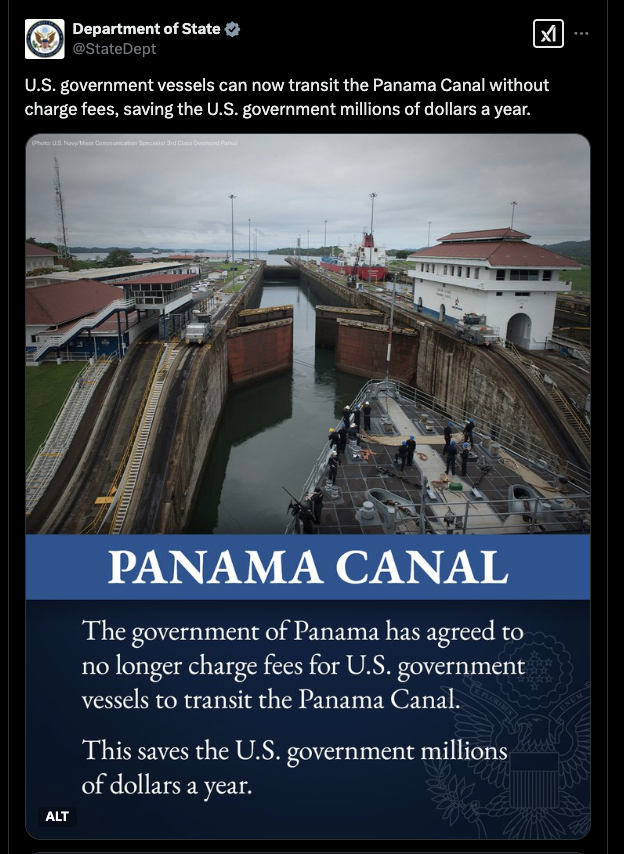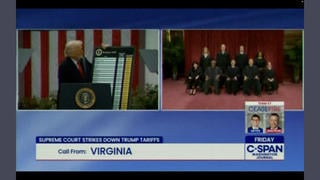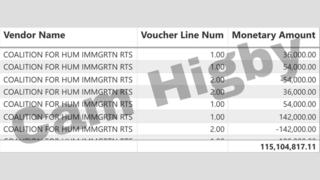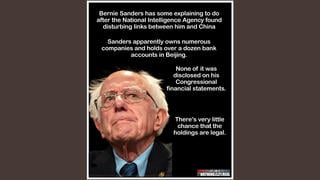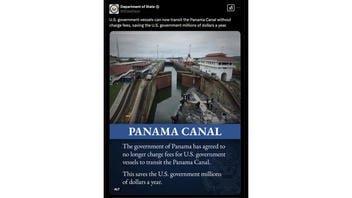
Did Panama approve waiving the fees for U.S. government vessels passing through the Panama Canal? No, that's not true: The president of Panama denied the claim made by the U.S. State Department account on X. The body that manages the Canal has said that it had "not made any adjustments to these fees."
The claim appeared in a post (archived here) on X on February 5, 2025. It said:
U.S. government vessels can now transit the Panama Canal without charge fees, saving the U.S. government millions of dollars a year.
Additional text in an image shared in the post explicitly said that the government of Panama "has agreed to no longer charge" these fees.
This is what the post looked like on X at the time of writing:
(Source: X screenshot taken on Thu Feb 6 18:55:49 2025 UTC)
On February 6, 2025, Panamanian President José Raúl Mulino (archived here) explicitly refuted the claim. He made a statement (archived here) that reads, as translated by Chrome:
I am very surprised by the State Department's statement yesterday (Wednesday), because they are making important, institutional statements from the entity that governs the foreign policy of the United States, under the president of the United States, based on a falsehood, and that is intolerable. Simply and simply intolerable. Today, Panama is stating, through you (the media) and to the world, my absolute rejection of continuing to explore the path of managing the bilateral relationship based on lies and falsehoods.
On February 5, 2025, the Panama Canal Authority, which is the autonomous entity that "is exclusively responsible for the administration, operation, conservation, maintenance and modernization of the Canal," (archived here) denied the claim on X (archived here), too. As translated by DeepL, its press release said:
PANAMA CANAL
Communiqué In response to a publication issued by the U.S. Department of State, the Panama Canal Authority, which is authorized to set tolls and other fees for transiting the Canal, announces that it has not made any adjustments to these fees.
With absolute responsibility, the Panama Canal Authority, as it has indicated, is willing to establish a dialogue with the pertinent officials of the United States with respect to the transit of United States warships.
Panama, February 5, 2025.
Additionally, Article 76 of the Panama Canal Law (archived here) that established the Panama Canal Authority in 1997 reads:
Neither the Government nor the Authority may authorize exemption from the payment of tolls, fees, or tariffs for Canal services. Notwithstanding, vessels exempted by virtue of international treaties in effect, ratified by the Republic of Panama, shall not pay tolls for transiting the Canal.
The full list of tolls and tariffs is available here (archived here).
The U.S. use of the Panama Canal is governed by two Torrijos-Carter treaties signed in 1977 (archived here).
Article II of the Treaty Concerning the Permanent Neutrality and Operation of the Panama Canal (archived here) reads:
The Republic or Panama declares the neutrality of the Canal in order that both in time or peace and in time of war it shall remain secure and open to peaceful transit by the vessels of all nations on terms of entire equality, so that there will be no discrimination against any nation, or its citizens or subjects, concerning the conditions or charges of transit, or for any other reason, and so that the Canal, and therefore the Isthmus of Panama., shal l not be the target of reprisals in any armed conflict between other nations of the world.
The foregoing- shall be subject to the following requirements:
(a) Payment of tolls and other charges for transit and ancillary services, provided they have been fixed in conformity with the provisions of Article III(c);
(b) Compliance with applicable rules and regulations ...
The Neutrality Treaty says that U.S. warships are entitled to transit the Canal expeditiously, but the agreement doesn't say it will be toll-free. Furthermore, the two presidents who signed the treaties issued a joint statement (archived here) explicitly stating that it "does not mean, nor shall it be interpreted as a right of intervention of the United States in the internal affairs of Panama" and that "any United States action will be directed at insuring that the Canal will remain open, secure and accessible, and it shall never be directed against the territorial integrity or political independence of Panama."
The second document signed by then-President Jimmy Carter (archived here) and then head of Panama Omar Torrijos (archived here) was the Panama Canal Treaty (archived here). It transferred the control over the Canal from the United States to Panama by the year of 2000 (archived here).
Read more
Other Lead Stories fact checks of claims about current events can be found here.
Stories concerning claims about international topics are here.

